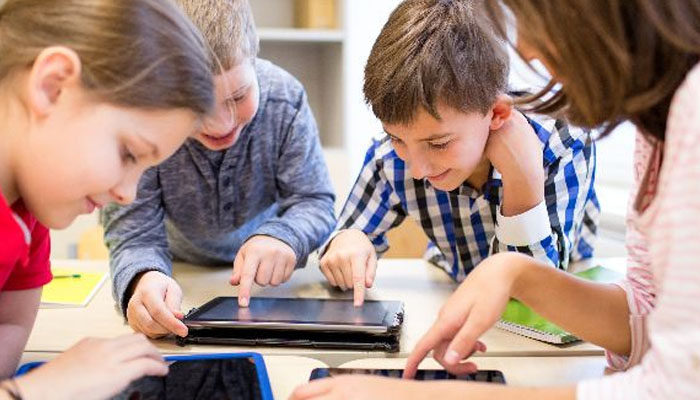
Some kids beg for candy. Others? They beg for screen time. And if you’re a parent in 2025, you’ve probably asked yourself more than once: “If they’re going to be glued to a screen, can they at least learn something from it?”
The answer is yes—and surprisingly, you don’t have to spend a dime. There’s a growing collection of free learning apps out there that actually deliver. They don’t just distract kids; they teach them—without the whining, ads, or confusing interfaces. Whether your little one is just learning their ABCs or diving into multiplication tables, the right app can turn screen time into something worth cheering for.
Here are some of the best free learning apps for kids in 2025—tested by kids, trusted by parents, and totally free to download.
Khan Academy Kids

Khan Academy Kids continues to be a favorite among parents and teachers. It’s designed for children ages 2 to 8 and covers subjects like reading, math, social-emotional learning, and even creative activities. The characters are friendly, the design is colorful, and there’s no pressure—kids can learn at their own pace.
This app adapts to your child’s learning level and gives regular feedback, so it grows with them. There are also read-aloud books, drawing exercises, and songs, making it a great all-in-one option.
Duolingo ABC
Duolingo is well-known for helping adults learn new languages, but they’ve created a special version just for kids who are learning to read: Duolingo ABC. Aimed at kids aged 3–7, this app focuses on early literacy skills like letter recognition, phonics, and vocabulary.
The lessons are short and interactive, with cute characters and fun sounds. It’s perfect for preschoolers and kindergartners who are just starting to sound out words.
PBS Kids Games

If you’re looking for an app that blends fun and education seamlessly, PBS Kids Games is a great choice. It’s packed with hundreds of mini-games that feature popular characters like Daniel Tiger, Elmo, and Arthur.
Each game is tied to a learning concept, whether it’s counting, science, problem-solving, or healthy habits. The content is updated regularly, and because it’s from PBS, you can feel confident the material is educational and age-appropriate.
Prodigy Math
For kids in elementary and middle school, Prodigy turns math practice into an exciting role-playing game. Kids create their own characters and complete math quests to earn points and unlock new challenges.
While Prodigy does offer premium features, the core math content is completely free. Teachers often use this in classrooms, and kids love the sense of adventure that comes with solving math problems in a fantasy world.
Starfall

Starfall is especially popular among early readers and is widely used in classrooms across the U.S. It’s designed to help kids learn letters, sounds, and basic reading skills through songs, stories, and games.
The free version includes the alphabet, early reading stories, and some math games. It’s perfect for kids in pre-K through first grade. The layout is simple, and even kids who can’t read yet can navigate with a little help.
ScratchJr
If your child is curious about how things work, ScratchJr introduces basic coding concepts in a playful way. Kids use blocks to create animations, stories, and games—without needing to know how to type.
This app supports creativity and problem-solving, and it’s perfect for kids ages 5 to 7. Parents love that it teaches logic and sequencing in a screen activity that feels more like play than schoolwork.
BrainPOP Jr. Movie of the Week
BrainPOP Jr. offers short animated videos that explain topics like science, health, social studies, and grammar in a kid-friendly way. The “Movie of the Week” feature is free and updated regularly.
Each video includes quizzes, activities, and even simple writing prompts to help reinforce learning. This app is ideal for kids ages 5 to 9 who enjoy watching videos and asking big questions.
Toca Life World (Free Starter Pack)

While not traditionally labeled as educational, Toca Life World encourages open-ended play, storytelling, and exploration. Kids can create characters, build scenes, and come up with their own stories using the free starter pack.
This app doesn’t teach math or reading directly, but it helps develop creativity, sequencing, and social thinking—especially in younger kids. It’s a great “quiet time” app that still promotes learning through play.
Fish School
For toddlers and preschoolers, Fish School offers colorful, simple games that teach letters, numbers, shapes, and colors. The animations are cheerful and the pace is slow enough for younger kids to follow without getting overwhelmed.
The app is designed by early childhood experts, and it feels more like a gentle introduction to learning rather than a formal lesson. It’s a great pick for screen time with your littlest learners.
Funbrain Jr.
From the creators of the popular educational site Funbrain, this app is geared toward early learners in preschool and kindergarten. It includes short games, stories, and math puzzles—all designed to be quick, fun, and easy to understand.
Parents like that it doesn’t require an account to play, and kids like the bright visuals and silly characters. It’s also ad-free, which is a huge plus when handing your phone or tablet over to a 4-year-old.
